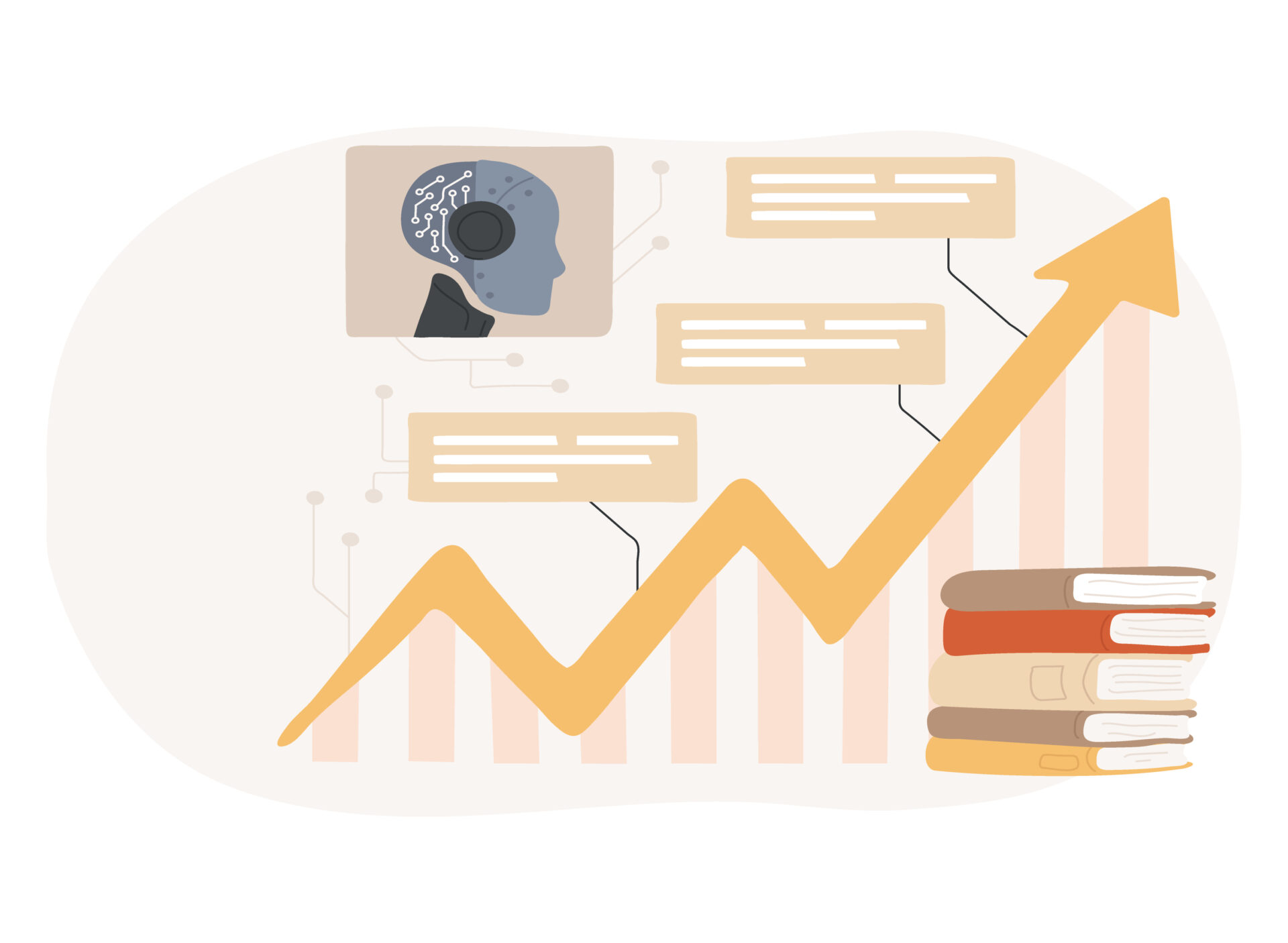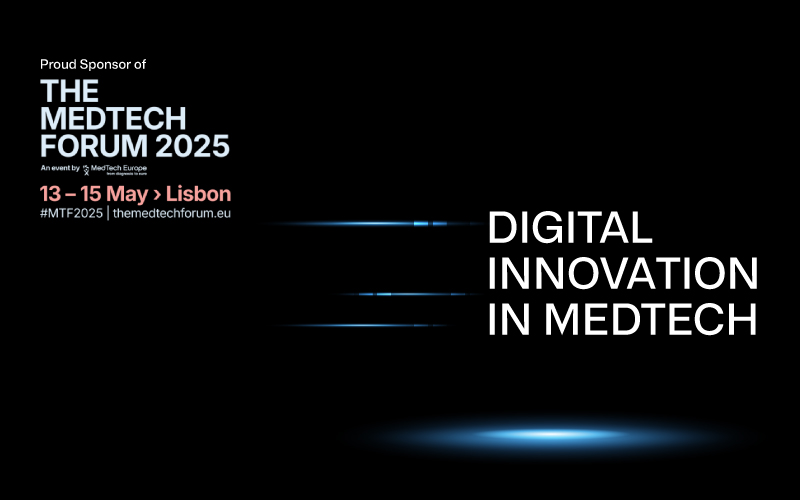Category: MedTech
4 minutes read
The European MedTech Advantage: How AI Drives Commercial Success Amid Complexity
Europe’s MedTech Dilemma: Complexity Vs Opportunity
Europe’s MedTech sector stands at a crossroads, brimming with unprecedented opportunity yet shadowed by unique complexities. Given the highly fragmented regulatory environment, a rapidly ageing population, and a growing burden of chronic diseases, commercial success in this market requires a nuanced approach. Consequently, AI-driven solutions are emerging as a game-changer, enabling MedTech companies to navigate these challenges with precision, efficiency, and speed.
The Challenge: A Complex, Evolving Market
Unlike the US or other major markets, Europe’s MedTech industry must navigate a fragmented and multifaceted regulatory landscape—adapting to country-specific compliance requirements, reimbursement models, and procurement processes. Adding to this complexity are Europe’s demographic pressures: an ageing population, with nearly 30% expected to be over 65 by 2050, and a sharp rise in chronic diseases, which already account for 70–80% of healthcare spending. These converging challenges make it imperative for MedTech companies to adopt smarter, data-driven, and cost-effective strategies to succeed.
Regulatory and Compliance Considerations
The EU MDR and IVDR already impose stringent standards on device safety, performance, and clinical evaluation, demanding resource-intensive compliance efforts like continuous post-market surveillance and updated documentation. Furthermore, the EU’s AI Act introduces significant compliance requirements, with potential fines of up to €30 million or 6% of global turnover for violations. This dual regulatory pressure, compounded by varying national interpretations of these regulations leading to market entry delays, underscores the critical need for MedTech companies to proactively adapt to this evolving landscape.
Diverse Reimbursement Models and Procurement Challenges
The European MedTech market, comprising 27 EU member states, is shaped by diverse reimbursement systems and procurement frameworks. Each country enforces its own health technology assessment (HTA) criteria and pricing negotiations, requiring MedTech companies to adapt their market access strategies accordingly. This often involves generating country-specific clinical evidence and cost-effectiveness data to satisfy local payer expectations. At the same time, procurement processes—particularly within publicly funded healthcare systems—remain fiercely competitive and increasingly price-sensitive, making it essential for firms to leverage AI-driven insights to optimise tendering and pricing strategies.
To thrive in this multifaceted environment, MedTech players must move beyond traditional commercial strategies. They need data-driven decision-making and AI-enhanced market intelligence to optimise their go-to-market approach.
AI as the Competitive Differentiator
Artificial intelligence is already helping MedTech companies streamline operations, enhance decision-making, and drive commercial success in several key ways:
1. Market Access and Regulatory Navigation
AI-powered platforms streamline regulatory compliance by providing real-time updates on evolving frameworks, such as the EU MDR and IVDR. By predicting potential roadblocks and recommending optimal market entry pathways, these solutions empower MedTech firms to tailor submissions for swift approvals.
2. Pricing and Procurement Optimisation
AI-driven machine learning and predictive modelling provide visibility into procurement trends, pricing benchmarks, and competitor strategies. By leveraging these insights, MedTech companies can develop dynamic pricing models and identify strategic opportunities to improve cost-efficiency.
3. Predictive Demand and Supply Chain Resilience
With supply chain disruptions becoming more frequent, AI helps MedTech firms forecast demand fluctuations and optimise logistics. AI-powered forecasting tools can analyse historical data, market conditions, and geopolitical trends to enhance logistical efficiency.
4. Targeted Commercial Strategies
AI enables hyper-targeted marketing and sales efforts by identifying key stakeholders, mapping procurement behaviour, and tailoring engagement strategies. This data-driven personalisation helps sales teams optimise their outreach and boost conversion rates.
5. Enhancing Healthcare Outcomes
By integrating AI-driven decision support systems, MedTech firms can aid healthcare providers in selecting the most effective devices and treatment pathways. This not only improves patient outcomes but also strengthens brand trust and market positioning.
Real-World AI Success Stories in European MedTech
Several MedTech companies are already leveraging AI to gain a competitive edge:
- AI for Regulatory Compliance: Siemens Healthineers deploys AI-based compliance tools to streamline MDR certification and regulatory workflows.
- Procurement Intelligence Platforms: GE Healthcare utilises AI-powered platforms to analyse procurement data across Europe, optimising pricing and tender strategies.
- AI-Powered Demand Forecasting: Philips has embraced AI-driven forecasting, utilising time-series analysis and machine learning algorithms to anticipate demand fluctuations and enhance inventory management. This allows for increased supply chain agility.
- Dynamic Pricing Models: Medtronic employs AI-driven pricing models to dynamically adjust pricing strategies across European markets, ensuring optimal reimbursement outcomes and better alignment with national healthcare budgets.
- Targeted Commercial Strategies: Johnson & Johnson uses AI-powered customer insights, derived from customer relationship management (CRM) data and behavioural analytics, to refine their sales approaches, leading to increased conversion rates in targeted European markets.
- AI-Driven Diagnostics: AI-assisted diagnostics in cardiology, leveraging deep learning models for image analysis and patient data integration, have improved early detection rates, enabling quicker intervention and better patient care.
Conclusion: Turning Complexity into Competitive Advantage with AI
Europe’s MedTech market may be complex, but within that complexity lies immense opportunity for companies willing to adapt. Artificial intelligence is rapidly becoming the differentiator that separates market leaders from followers—powering smarter pricing strategies, accelerating regulatory approvals, and strengthening supply chain agility. By embedding AI across commercial operations, MedTech firms can transform fragmented systems and shifting regulations into sources of strategic advantage.
As adoption scales, ethical considerations—such as data privacy, transparency, and algorithmic fairness must remain central to AI implementation. With the right governance in place, those who treat AI not just as a tool but as a strategic enabler will unlock lasting success in one of the world’s most challenging yet rewarding healthcare markets.
Unlock Lasting Success
Engage with our team to learn more on how AI can support your commercial endeavours.
Get in touch with us
Please provide your details and we’ll contact you
Other Articles
5 minutes read
Why MedTech Investors Prioritise AI-First Companies

MedTech investors are increasingly favouring companies that embed artificial intelligence (AI) into their strategic core, recognising the transformative benefits that AI delivers across the healthcare ecosystem. This shift toward an AI-first approach is driven by compelling evidence of enhanced operational efficiency, accelerated innovation, significant improvements in patient outcomes, and superior return on investment (ROI).
In a recent webinar, Marcel Haan, founder of Foxfire Academy, and Richard Charter, Senior Advisor at Vamstar, emphasised the critical shift from a traditional regulatory-first mindset to a more proactive commercialisation-first strategy. Historically, companies have prioritised regulatory approvals, often overlooking critical commercialisation aspects such as market intelligence, reimbursement strategies, and evidence generation. This oversight frequently results in market entry failures or delayed product adoption.
AI-first strategies provide a potent solution by dramatically enhancing the precision and depth of market intelligence, risk assessment, and commercialisation planning. Investors increasingly value these AI-driven insights for their ability to reduce uncertainties associated with market entry. AI tools facilitate real-time monitoring of regulatory landscapes, reimbursement environments, pricing strategies, and competitor dynamics—key factors investors consider crucial for assessing a company’s long-term viability and profitability.
Richard Charter highlighted how AI-powered platforms, such as those provided by Vamstar, significantly mitigate commercialisation risks by offering predictive analytics and precise evidence-generation capabilities early in the product development lifecycle. Investors see tremendous value in companies utilising these advanced tools, as they greatly enhance transparency, facilitate data-driven decision-making, and improve overall market readiness.
AI’s transformative potential extends directly to patient care, where predictive analytics and proactive management systems, exemplified by companies like Cera Care, have successfully reduced hospitalisations by up to 70%. Additionally, in the drug discovery sector, AI-driven companies like Ignota Labs effectively reduce development timelines and costs, significantly boosting ROI by streamlining the repurposing and commercialisation of therapeutic candidates.
Regulatory agencies, including the FDA, are adapting to accommodate AI innovations, introducing frameworks such as pre-determined change control plans (PCCPs) to enable adaptive AI solutions. This regulatory evolution significantly reduces investor risk by providing clear guidelines and predictability for future market adjustments, further validating investor confidence.
Investor confidence is strongly evidenced by recent substantial funding successes, such as Navina securing $55 million in Series C funding. This reflects market sentiment that AI-first companies are exceptionally well-positioned to overcome commercialisation challenges and deliver robust financial returns.
Ultimately, AI-first MedTech companies—leveraging comprehensive, AI-enabled commercialisation strategies—are increasingly attractive investments. They not only promise accelerated market entry and improved patient outcomes but also significantly reduce investment risks through informed, evidence-based decision-making, thereby securing strong, sustainable growth in the complex healthcare landscape.
Vamstar exemplifies the ideal partner in this landscape by delivering advanced AI-powered solutions that precisely address these investor priorities. With robust capabilities in market intelligence, predictive analytics, evidence generation, and pricing strategies, Vamstar empowers MedTech companies to effectively navigate commercialisation challenges and optimise their market potential. By bridging traditional industry expertise with cutting-edge AI technology, Vamstar positions MedTech innovators to confidently attract investment, accelerate their market entry, and achieve sustained competitive advantages.
Watch The Full Webinar
Watch the full webinar featuring Marcel Haan and Richard Charter, and discover how AI-first strategies are reshaping the future of MedTech investments.
Other Articles
7 minutes read
Building AI-Ready Teams: Digital and Commercial Upskilling in MedTech
AI in MedTech: Beyond Automation
Envision a MedTech landscape where Artificial Intelligence (AI) drives strategic decision-making, personalises patient interactions, and identifies untapped market opportunities. This transformative vision is no longer futuristic; it’s today’s operational reality. Leveraging AI, MedTech companies achieve predictive diagnostics, real-time clinical decision support, and hyper-personalised healthcare solutions.
However, technology alone does not unlock AI’s full potential—it’s the skills and competencies of the workforce that catalyse true transformation. Structured digital and commercial upskilling is critical, ensuring AI serves as a strategic advantage rather than a disruptive force. To lead in an AI-powered market, MedTech organisations must prioritise comprehensive AI literacy across both technical and commercial teams.

AI Skills Imperative: Core Competencies
In the MedTech industry, AI’s value extends beyond mere automation; it shapes strategic decisions, enhances operational efficiencies, and optimises market positioning. Successfully embedding AI within organisations demands teams equipped with practical expertise, collaborative agility, and a deep-rooted AI-first mindset.
Essential AI Upskilling Areas:
AI and Data Fluency
- Mastering AI Tools & Analytics: Proficiency in AI-driven platforms, including predictive analytics (e.g., Python, Power BI) and advanced CRM systems, enabling accurate interpretation of market and patient data.
- Translating Insights to Action: Training teams to convert AI-generated insights into actionable strategies for innovation, customer engagement, and informed decision-making.
Regulatory and Ethical AI Compliance
- AI Governance Standards: Comprehensive understanding of regulatory frameworks (GDPR, HIPAA, upcoming AI legislation), ensuring compliant and responsible AI integration.
- Addressing AI Bias: Education on identifying and mitigating biases in AI models to maintain accuracy and ethical standards in diagnostics and care recommendations.
Cross-Functional Collaboration
- Breaking Organisational Silos: Structured training in cross-departmental collaboration, ensuring cohesive integration of AI strategies among R&D, commercial, regulatory, and data science teams.
- Developing AI Ambassadors: Establishing internal AI champions and cross-functional committees to promote AI adoption and knowledge dissemination.
AI-Powered Commercial Applications
MedTech requires commercially savvy teams capable of embedding AI into key business processes:
- AI-Enhanced Sales Forecasting: Utilising AI to anticipate market trends and customer behaviours, significantly improving forecasting accuracy. Example: A major MedTech firm boosted forecast accuracy by 15%, achieving inventory cost savings of 5%.
- Dynamic Pricing: Implementing AI-powered pricing strategies responsive to market dynamics, competitor analysis, and demand fluctuations, requiring expertise in reinforcement learning and real-time analytics.
- Hyper-Personalised Marketing: Leveraging AI-driven customer segmentation for highly targeted engagement, enhancing marketing effectiveness and customer retention through personalised content and predictive interactions.
- Automated Lead Generation & CRM Optimisation: Integrating AI in CRM platforms to efficiently manage and nurture leads, prioritise high-value interactions, and optimise sales conversions.
Register to continue reading.
5 minutes read
MedTech Forum 2025: Vamstar Leading the Charge in Digital Transformation
Healthcare is evolving fast—and let’s be honest, digital transformation isn’t just another talking point; it’s the cornerstone reshaping the industry’s future. The MedTech Forum 2025, taking place in Lisbon from May 13-15, serves as a vital platform for leaders across the MedTech and health technology sectors to explore the latest innovations and strategic developments. Vamstar, a Platinum Sponsor of this highly anticipated event, is proud to contribute to these conversations and showcase how AI and digital solutions are reshaping the future of healthcare.

A New Era of Medical Technology: Embracing Digital Transformation
The pace of digital transformation within the MedTech industry is unprecedented. Advances in Artificial Intelligence (AI), machine learning, and the Internet of Medical Things (IoMT) are unlocking new opportunities for healthcare professionals, manufacturers, and patients alike. From connected medical devices to AI-driven diagnostics, digital technologies are enhancing treatment outcomes, improving patient experiences, and streamlining operations across the healthcare ecosystem.
At Vamstar, we are committed to accelerating this transformation by providing the tools and technologies that enable MedTech companies to accelerate commercial innovation and stay ahead in a competitive, rapidly changing market. Our suite of AI-driven solutions supports businesses in navigating the complexities of data integration, real-time analytics, and value-based procurement, empowering stakeholders to make data-driven decisions and enhance patient care.
Vamstar’s Role at MedTech Forum 2025: Innovation, Collaboration, and Impact
As a Platinum Sponsor of MedTech Forum 2025, Vamstar is poised to engage with industry leaders, innovators, and policymakers on the critical issues surrounding digital transformation in MedTech. Our participation highlights our deep commitment to advancing technology-driven solutions that address the industry’s most pressing challenges, including operational efficiency, regulatory compliance, and market access.
One of the event’s highlights will be our exclusive panel session, AI Unleashed: Strengthening MedTech Competitiveness in a New Industrial Age, where industry leaders will share actionable insights into harnessing AI for transformative impact. In this session, we will examine how AI-driven solutions accelerate product development, sharpen go-to-market strategies, and unlock new revenue streams, especially in Europe’s complex healthcare landscape. While the industry is abuzz with hyperbolic commentary about European regulations and the disruptive potential of AI, we must remember that healthcare remains deeply human. With Europe’s ageing population and an increased prevalence of chronic illness, the demand for MedTech innovation is at an all-time high. However, the sector faces mounting challenges, including regulatory hurdles, cybersecurity threats, legacy commercial infrastructure, and evolving digital requirements.
Rather than viewing AI as a mere tool to implement, we will explore how it can empower leaders to navigate complexity, simplify decision-making, and align strategic priorities. Is your organisation prepared to embrace these capabilities? Do your teams possess the digital savvy and commercial acumen to fully leverage AI?
Through real-world discussion and case studies, this session will demonstrate how AI-enabled strategies can unlock Europe’s massive market potential by delivering regulatory clarity, enhancing market access, and driving commercial excellence. Join us to learn how MedTech leaders are using AI to develop robust contracting frameworks, tailor sales approaches, and strengthen partnerships across diverse EU systems.
Ultimately, by leveraging the right AI tools in the right ways, the MedTech industry can thrive in the new industrial revolution—ensuring that patients continue to benefit from transformative innovations and that businesses maintain a competitive edge.
Conclusion
The digital transformation of the MedTech sector is more than just a trend—it is a revolution that is redefining how care is delivered and how technologies are developed, regulated, and commercialised. As a Platinum Sponsor of MedTech Forum 2025, Vamstar is proud to be part of this transformative journey, driving innovation and collaborating with industry leaders to ensure that the future of healthcare is powered by cutting-edge technology and real-time insights.
Join us in Lisbon and discover how Vamstar is helping to shape the future of MedTech through digital transformation.
Join Us
Join us in Lisbon and discover how Vamstar is helping to shape the future of MedTech through digital transformation.
Other Article
14 minutes read
Bridging the IT Gap in Pharma, MedTech, and Biotech Commercialisation

Introduction
While much of the conversation around technology in Lifesciences, Pharma, MedTech, and Biotech revolves around drug trials, regulatory compliance, and drug repurposing, there is a significant gap in discussions about the role of IT in commercialisation, go-to-market strategies, and market access.
These challenges are particularly pressing because commercial success depends on seamless integration between sales execution, regulatory compliance, and market strategy that often remain disconnected in traditional IT frameworks. Companies like Vamstar can play a pivotal role in addressing these hurdles, enabling streamlined commercialisation and optimised market entry.
Access this article
Please enter your details to continue reading.
Subscribe to continue reading.























